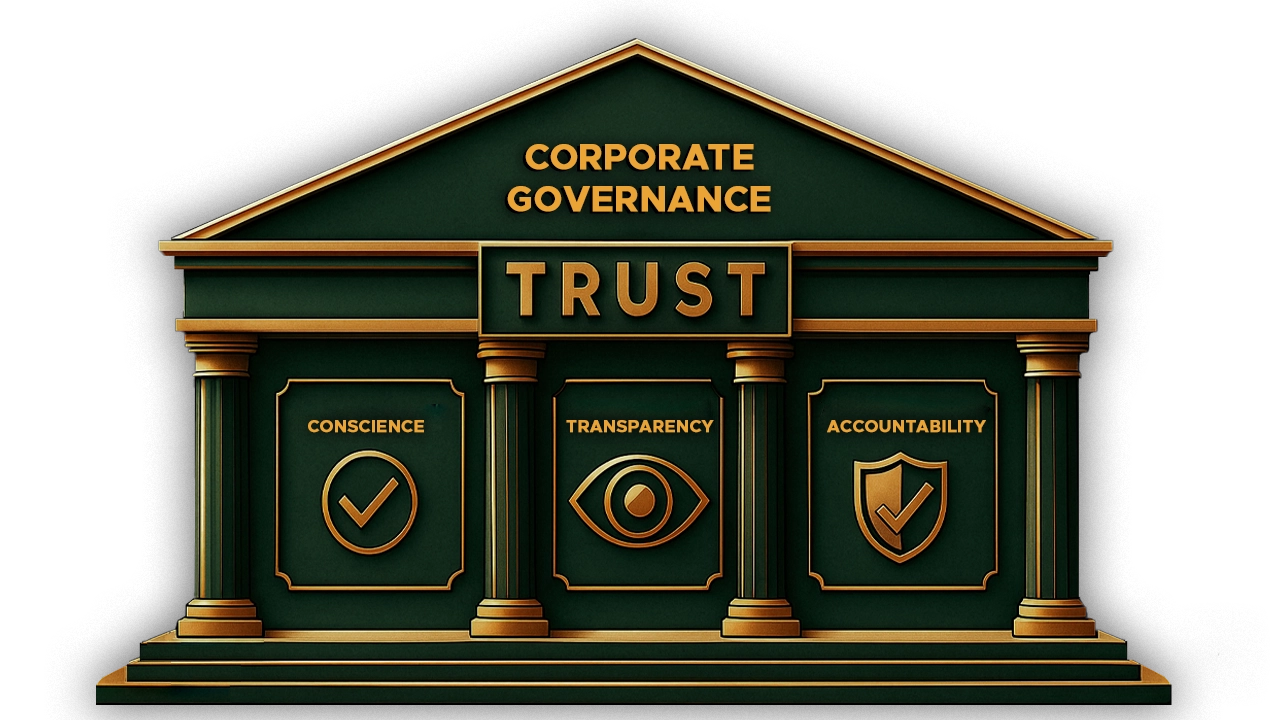Introduction
The recent conviction of a high-profile corporate executive for financial misconduct, leading to billions in investor losses and a deep erosion of public trust, serves as a stark reminder of the essential yet fragile nature of sound corporate governance. The Ministry of Corporate Affairs in India has rightly underscored that robust governance mechanisms are the bedrock for preventing fraudulent activities, safeguarding investor rights, and maintaining market confidence. As the global corporate landscape accelerates its digital and ethical transformation, boards worldwide, including those in India, must pivot swiftly to embrace a new era of accountability and transparency.
Corporate governance is no longer confined to the audit committee’s four walls; it has become a multidimensional discipline reflecting a profound shift in corporate purpose. Gone is the singular obsession with shareholder returns; emerging is a holistic stakeholder capitalism that recognizes the value created by—and the responsibility owed to—employees, customers, suppliers, and the environment. But how, precisely, is this new global compass affecting boardroom decisions? This global pivot is most visible in the accelerating adoption of Environmental, Social, and Governance (ESG) considerations. Investors and regulators now demand more than mere pledges; they require tangible integration of sustainability metrics, making climate risk and social value creation fundamental to long-term performance.
Simultaneously, the focus on Diversity, Equity, and Inclusion (DEI) has intensified. Boards are recognizing that a leadership team reflecting the world’s population—spanning gender, ethnicity, and professional expertise—is not altruism, but a vital ingredient for superior decision-making, reducing the blindness of ‘groupthink.’ The boardroom is also becoming a technology hub. The rise of Artificial Intelligence (AI) and advanced analytics is enhancing digital governance, promising real-time governance dashboards that enable strategic agility. Yet, this digital leap carries a heavy shadow: the escalating threat of sophisticated cybercrime and the new ethical challenges inherent in AI’s biases and lack of transparency. For the conscientious board, overseeing this technology, not just implementing it, has become a fiduciary duty. This climate is further energized by resurgent shareholder activism, where investors wield their voices and votes to enforce better governance and higher ESG standards.
Is the Indian corporate world merely playing catch-up, or is it actively shaping its own future in sync with global currents? The evidence points to an undeniable, often mandate-driven, convergence. India’s regulatory bodies have actively leveraged the global zeitgeist to strengthen the domestic framework. The Securities and Exchange Board of India (SEBI) has been a flagbearer of this shift, notably through the introduction of the mandatory Business Responsibility and Sustainability Reporting (BRSR). This move represents a decisive step towards embedding ESG into the corporate DNA of India’s largest companies, moving disclosure from a voluntary exercise to a compliance imperative, thereby aligning India with international sustainability standards.
Furthermore, a significant organizational shift is underway with the “great board refresh.” As the maximum term limits for Independent Directors, established by the Companies Act 2013, conclude for many, a widespread search for new, strategically diverse board talent is forcing Indian companies to update their composition, focusing on a broader mix of skills and backgrounds. Simultaneously, new regulations targeting the disclosure of family settlement agreements shed a necessary light on the historically opaque governance structures of India’s many promoter-driven companies, compelling greater transparency to protect minority shareholder interests. The legal framework is now also fortified by the Digital Personal Data Protection (DPDP) Act, 2023, elevating data privacy and cybersecurity from an operational issue to a core board responsibility on par with global benchmarks like GDPR.
However, how do these sweeping changes affect an entity like an Indian Government Company, and do they create a conundrum of competing priorities? The demands of this new governance era present a particularly acute dilemma for Indian Government Companies (GCs), or Public Sector Enterprises (PSEs). These entities operate in a complex matrix where commercial goals often collide with political and bureaucratic mandates. While the push for agility, transparency, and ESG is universal, GCs face unique hurdles.
The global embrace of agile governance is often hampered by bureaucratic inertia and a perceived lack of managerial autonomy due to state ownership. Furthermore, attempts to bring greater board diversity and independence often stall in governmental appointment processes. Yet, compliance is no longer negotiable. The tightening regulatory noose from SEBI, which is now actively penalizing non-compliant PSEs, signals that GCs can no longer cite governmental red tape as an excuse for governance deficits, especially regarding board composition and financial disclosures. For GCs, embracing these trends is not just about attracting global capital; it is about reinforcing public trust and proving that state-owned entities can adhere to the highest standards of corporate conduct.
Given this complex landscape, what are the most significant regulatory challenges that General Counsels and corporate management teams must strategically anticipate and prepare for? The rapid acceleration of these trends creates a fertile but highly complex regulatory terrain. The most pressing concern is the sheer volume of regulatory fragmentation. The overlapping mandates from SEBI, the Ministry of Corporate Affairs, and other sectoral regulators—combined with the need to adhere to international frameworks for companies with global exposure—can turn the compliance function into a costly, complex burden. Furthermore, the integration of AI governance looms as a significant legal risk.
While AI offers immense efficiency, its non-transparent nature necessitates that GCs implement robust ethical frameworks before major deployment. Without clear internal protocols to address potential data bias and privacy risks, companies are exposing themselves to severe regulatory fines and reputational damage. Ultimately, the focus must shift to proactive risk anticipation. Boards and GCs must invest heavily in upskilling their directors and management on the technical aspects of cybersecurity and ESG. The days when a director could claim ignorance due to management malfeasance are over; the legal standard is now one of proactive oversight and continuous engagement. For all corporations, the path forward demands viewing robust, transparent, and ethically-driven governance not as a compulsory expense, but as the only sustainable source of corporate resilience and trust in a rapidly changing world.
Conclusion
The confluence of technological disruption, geopolitical uncertainty, and a radical shift in ethical expectations has propelled corporate governance into an era of unprecedented complexity. The central struggle for the modern corporation is no longer solely about maximizing profit, but mastering the precarious balance between financial performance and societal responsibility. As India’s market matures and its regulatory framework mandates global standards like BRSR and the DPDP Act, boards find themselves in a high-stakes environment where compliance failures have immediate and severe consequences for reputation and valuation.
The sheer cost and complexity of navigating regulatory fragmentation, implementing agile yet accountable oversight, and continuously upskilling directors to understand deep-tech risks like AI bias and sophisticated cyber threats, represent a heavy, non-negotiable tax on doing business. This dynamic forces a fundamental re-evaluation: Can governance be agile enough to capture digital opportunities without sacrificing the core principles of accountability? And will the inevitable political and bureaucratic pressures—particularly within state-owned enterprises—permit the genuine independence and transparency that global capital demands?
Looking ahead, the nature of corporate control itself is poised to face profound existential questions. If AI becomes an integral part of high-stakes strategic decision-making, who bears the ultimate fiduciary responsibility when an algorithm errs? Will the concept of the independent director evolve into a ‘technologist-director,’ requiring a new blend of ethical and digital expertise? Furthermore, as the world confronts resource scarcity and climate migration, how will the stakeholder model evolve to explicitly prioritize the environment and long-term planetary health over quarterly results?
The future of corporate governance will be defined by the courage of leaders to answer these emerging ethical and technological dilemmas, ensuring that the structures of accountability are not only robust but also morally future-proof, safeguarding not just shareholder wealth, but the very stability and integrity of the global economy.
Expositor(s): Adv. Anuja Pandit






